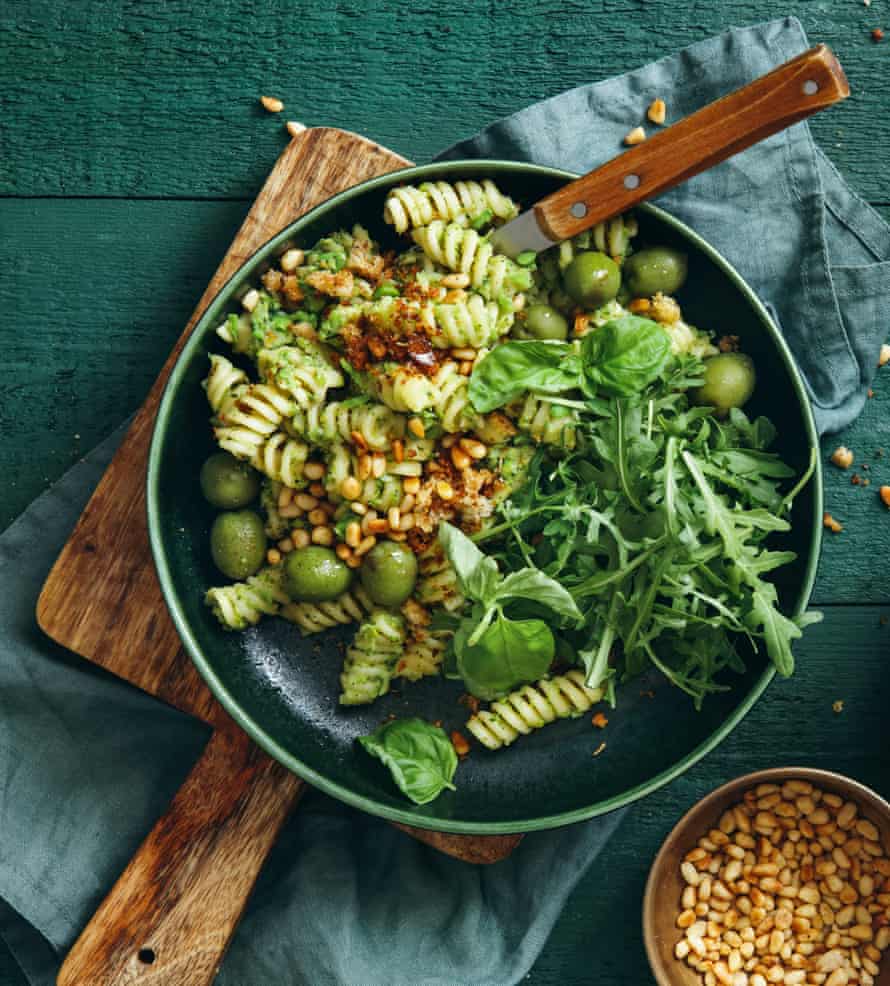Aging IQ is a news aggregate designed to create a location for all of your senior news from holiday meal ideas to cutting edge research. The below article was originally posted on their website by the author below.
Anna Berrill for The Guardian
Tue 15 Jun 2021 09.00 EDT

My friends hate pasta salad. How can I convince them otherwise?
Alice, Manchester
“I hate pasta salad, too,” says Stevie Parle, the chef and restaurateur behind London pasta joint Pastaio. “I think there’s some post-traumatic stress surrounding the dish, which you should respect.” Ruth Rogers, chef-owner of the River Cafe, goes even further: “I’d rather starve than eat pasta salad,” she declares. “That’s not to say I don’t like uncooked tomato and basil on pasta, but the pasta has to be very hot.”
Raw sauces are the way to go, Parle agrees. That could be finely chopped fresh tomatoes marinated in crushed garlic, herbs, vinegar and olive oil (plus capers and anchovies, too, should the mood take you). “That’s a fresh, summery pasta that isn’t stodgy or traumatic,” he says. “It’s like a tomato salad mixed with pasta.” Guardian columnist Rachel Roddy, whose latest cookbook, An A-Z of Pasta: Stories, Shapes, Sauces, Recipes, is out next month, also subscribes to this mantra: “Thinking of pasta salad as pasta with condiments dressed as a salad makes it much more friendly.” Conchiglie with tuna, white beans, chopped onions and cherry tomatoes tops her list, closely followed by pesto, green beans and potatoes. (Talking of pesto, Parle adds a whole courgette to his, whizzing it up in a food processor with herbs, garlic, olive oil, parmesan and pine nuts.)
Skye McAlpine, author of A Table for Friends: The Art of Cooking for Two or Twenty, by contrast, is “a big fan” of pasta salads, especially for picnics and beach outings. There are, however, some rules. First, don’t overcook the pasta: “It needs to hold its shape, so you want it really al dente.” While she favours penne, the shape you choose is another subject of debate. “Most recipes stipulate fusilli or farfalle, but those large shapes can go a bit claggy and floppy,” says restaurateur Russell Norman, whose new venture Trattoria Brutto opens in London this autumn. Instead, he prefers “smaller, tighter varieties” such as gnocchetti sardi (“a narrow, ridged, shell-shaped pasta”), trofie or fregola sarda.
Norman briefly rinses the cooked, drained pasta in cold water: “Shake off any excess and, as soon as it’s relatively dry, toss it in a tablespoon of dressing, so each piece gets coated.” This stops it sticking, avoiding that “gluey, starchy quality that isn’t particularly pleasant”. McAlpine, however, doesn’t rinse her drained pasta, and instead “drenches” it in olive oil – “That stops it clumping” – then seasons it generously, so it “absorbs that flavour while hot”. She then adds chopped tomatoes and mozzarella: “They tenderise and slightly melt into the oil, making the yummiest, drippy sauce – the kind you want to scoop up with bread.” Once it hits room temperature, toss in loads of fresh basil. Another McAlpine go-to is crushed broad beans tossed through pasta with lemon zest, olive oil, mint and lots of grated pecorino – “you could add chopped black olives, too”.
Pasta salad is also a big hit round Francesco Mazzei’s. “It’s my kids’ favourite,” says the chef-patron of London’s Sartoria, Radici and Fiume. “I make a tomato passata, then marinate it overnight in garlic, basil, salt and pepper, so it’s fresh and zingy.” The next day, he tosses that through cooked mezze penne, capers, black olives, cucumber, mozzarella and extra-virgin olive oil. “It’s phenomenal.” Just never, ever serve it straight from the fridge.
